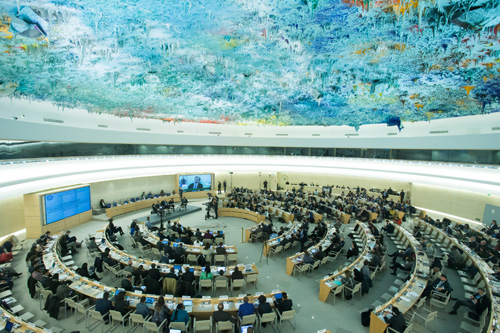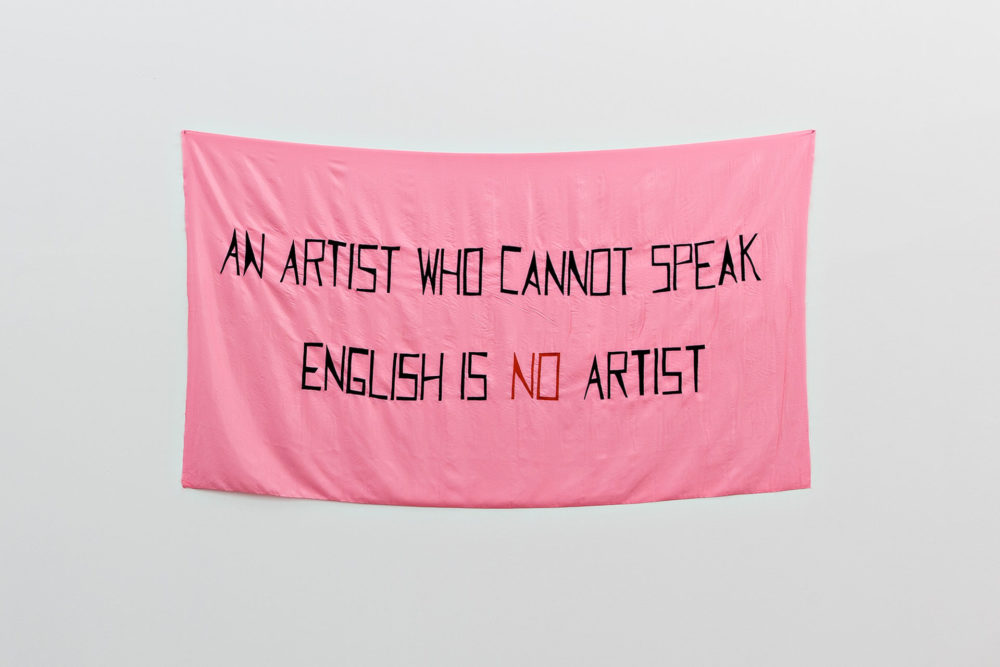Today more and more is being translated, but into fewer and fewer languages, mostly hegemonic ones. Thus, translation is leading to homogenization instead of enabling a life characterized by multilingualism. These politics of translation and untranslatability extend to newly coded languages and algorithmic logics in AI language development. What forms of translation does digitization generate? Can translating be a mode of resistance, by opening up a gap within languages? How can we translate our way out of a reduction and quantification of languages?
More information on the event and videos of the talks on hkw.de:
#Translating
With Ranjit Hoskoté, Lydia H. Liu, Sigrid Weigel, moderated by Boris Buden
This article by Vinit Agarwal is a study of untranslatability that takes place in the triangulation of an anoriginary dialect, a source language and a target language. This is done by using an anecdote of translation at the United Nations Human Rights Council. Furthermore, the article seeks to blur the boundaries between interpretation and translation to bring both of them in the realms of orality. Technological intermediation is addressed through an analysis of continued coloniality at the intersection of artificial intelligence enabled translations and the question of corpora on which the technological models are trained. The article turns to speculative retro-fiction as a form, where translational theories of present and past speak to each other in order to seek a futurist emancipation from the Tower of Babel.
read moreBesides ethical questions, shutting down one’s mind is a challenge and potential threat to the content which is supposed to be translated. The translation might appear right language-wise. But the original content will almost inevitably loose its soul.
->
read moreIn this essay, first published in springerin 02/2019, the translator and cultural critic Boris Buden reexamines the concept of ‘International Art English’ (IAE). Drawing from the 2012 essay by Alix Rule and David Levine under the same title, Buden argues for a more critical understanding of the practice of translation within IAE, where linguistic practice corresponds with social relations and constant historical transformation. In Buden’s perspective, International Art English “can be seen as a moment—temporal, contingent and socially formative—of the process of a progressive re-vernacularization of the English language.”
->
read moreLydia H. Liu is sharing her notes for her lecture on Monday, June 17th 2019 on the rooftop of HKW for our first New Alphabet School edition on TRANSLATING.
->
read moreUntranslatables are identifiable within the lexicographic turn in theory today (its engagement with graphology, digitality, data-management, and dictionary and encyclopedic knowledge-objects). As deterritorialized, plurilingual constructs, as political philologies traversing sovereign borders, Untranslatables are distinguished by their mistranslation, their retranslation, their non-translation, their non-negotiable singularities that are negotiated nonetheless. To theorize in Untranslatables implies foregrounding idiom and modes of expressionism in philosophy; it implies interrogating how thinking as process and praxis are translational.
In this blog-post, Emily Apter is sharing her script for her talk during the Opening Days Das Neue Alphabet in January 2019.
->
read more



